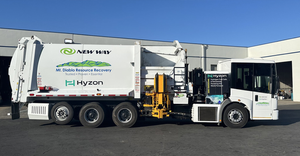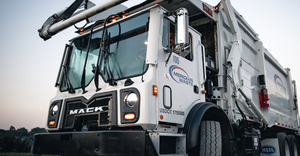WM Highlights Key Challenges in Recycling and the Path Forward in New Report
WM’s 2024 Recycling Report emphasizes the need for collaborative efforts among consumers, businesses, and policymakers to enhance recycling practices across the U.S.

Ahead of America Recycles Day on November 15, WM has released its 2024 Recycling Report.
The document explores collaborative efforts among households, businesses, policymakers, and local governments to enhance U.S. recycling efforts.
The survey of more than 1,000 American consumers and businesses sheds light on recycling behaviors, challenges, and areas for improvement, aiming to boost education, investment, and access to recycling resources. The report reveals that while Americans appear eager to recycle, many face obstacles due to limited understanding or access.
“Recycling is crucial to a sustainable circular economy, but it requires collective effort,” said Tara Hemmer, WM’s Chief Sustainability Officer.
She noted that as the demand for recycled materials rises, WM is actively investing in technologies and facilities to make recycling more accessible and efficient. The company's $1.4 billion investment includes plans to upgrade and construct 40 advanced recycling facilities by 2026.
The report also spotlights consumer preferences for eco-conscious brands, with 75 percent of respondents more likely to support companies using recycled materials. However, 60 percent of those surveyed lack clarity on which brands utilize recycled content, signaling a need for additional education and awareness efforts.
WM highlighted additional key survey results, most notably that:
Many Americans want to recycle, but some lack an understanding of how recycling works and the positive impact it can have on the environment. Many households across America have a high desire to recycle, with nearly half (44 percent) reporting that they are looking for ways to expand their recycling practices in the future. However, while 86% of people who recycle say they recycle plastic bottles and containers, 1 in 10 are not-at-all confident that their plastics are actually recycled.
Americans are likely more inclined to recycle when they have greater awareness, education and access. Data showed 45 percent of respondents cite a lack of knowledge about what can and cannot be recycled as their biggest barrier, and 64 percent say if they knew more about what to recycle and how (and what not to recycle), their involvement would increase.
Where consumers live can have an outsized impact on their recycling habits. Rural areas face greater accessibility issues – 50 percent of respondents in rural areas reported dealing with more inconveniences that led to lower rates of recycling, such as having to drive long distances or to a different site to recycle
Source: WM
About the Author
You May Also Like


